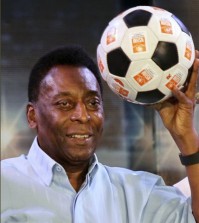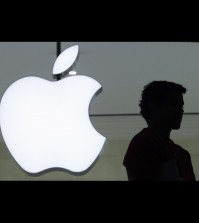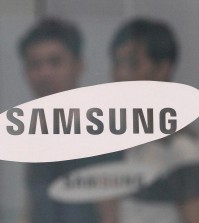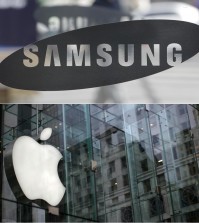- California Assembly OKs highest minimum wage in nation
- S. Korea unveils first graphic cigarette warnings
- US joins with South Korea, Japan in bid to deter North Korea
- LPGA golfer Chun In-gee finally back in action
- S. Korea won’t be top seed in final World Cup qualification round
- US men’s soccer misses 2nd straight Olympics
- US back on track in qualifying with 4-0 win over Guatemala
- High-intensity workout injuries spawn cottage industry
- CDC expands range of Zika mosquitoes into parts of Northeast
- Who knew? ‘The Walking Dead’ is helping families connect
U.S. district court to deliver ruling over Samsung-Apple war soon
(Yonhap) — A U.S. district court based in California is expected to deliver its ruling soon on a patent battle between Samsung Electronics Co. and Apple Inc. as the two are unlikely to reach an agreement in their settlement talks due this month, industry watchers said Monday.
Samsung and Apple have been told by a U.S. court to work out a settlement by Feb. 19 to end their patent war, but the negotiations have been slow without any marked progress.
Judge Lucy Koh, of the U.S. District Court for Northern California, last week rejected the two tech giants’ retrial requests.
In November 2013, a U.S. jury issued a verdict ordering Samsung to pay Apple US$290 million in damages, saying the world’s No. 1 smartphone maker copied key features of the iPhone and iPad.
As the judge also accepted $640 million in a partial judgment in March last year, industry sources expect Samsung will have to pay a total of $930 million to the U.S. rival.
With the retrial requests thrown out and settlement talks muddled, the U.S. court is likely to deliver its first ruling in a few weeks.
Industry watchers say the battle is not going to end soon, as the two parties are expected to appeal.
Analysts predict that the court battle, however, is not going to dent Samsung Electronics’ market share growth in Apple’s home turf. The South Korean tech giant has been expanding its presence in the U.S. on the back of its Galaxy lineup, grabbing a 31.6 percent share of the North American smartphone market by shipping 44 million units last year, data by Strategy Analytics showed. It marked the first time for the number to surpass 30 percent in that region.
Following Samsung’s growth, Apple suffered a weakened foothold in the U.S. in 2013, with the tech firm’s market share falling 1.3 percentage points from a year earlier to 36.3 percent.
“The U.S. court’s ruling will only have a limited impact on Samsung’s earnings, as related concerns have already been priced in, and the company also holds strong liquidity to handle the amount of compensation,” said Ryan Hong, a researcher at LIG Investment & Securities Co.
















